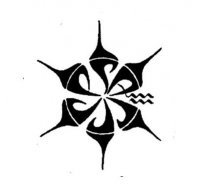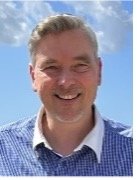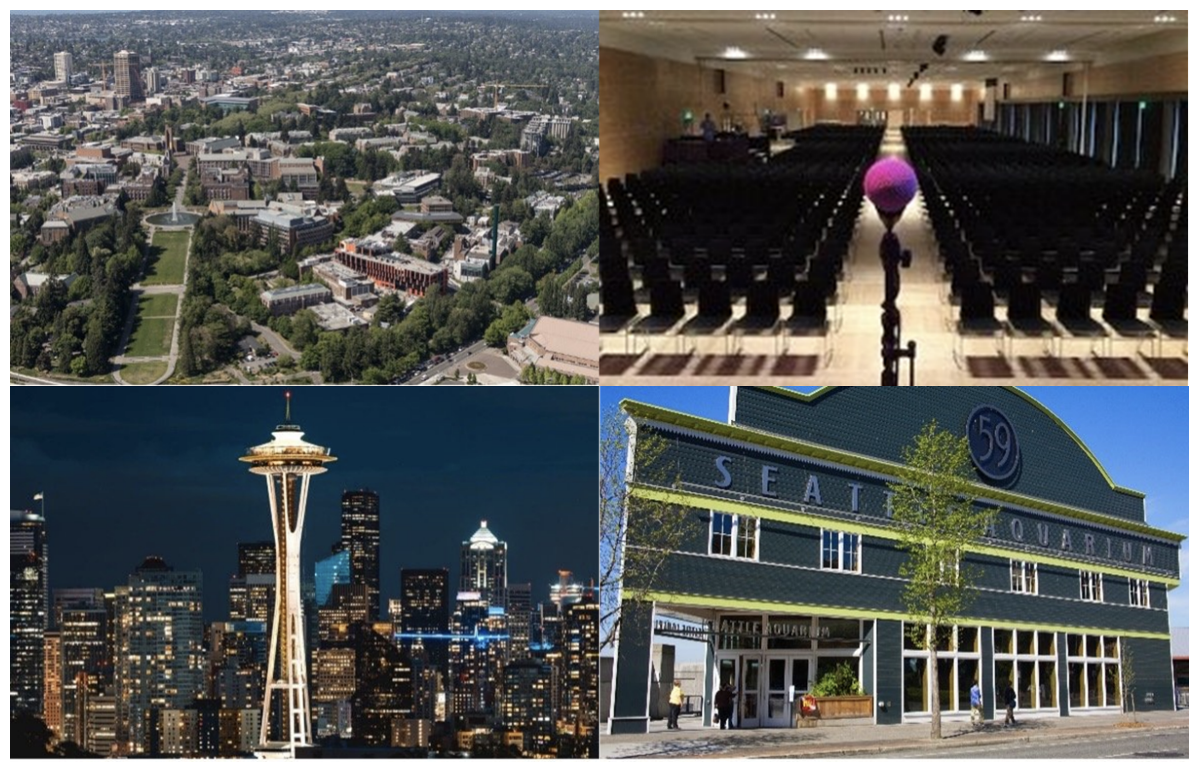See the program for more information on our amazing logo artists
Get ready for a tidal wave of excitement! PSA 2024 is not just about algae; it’s about amplifying the enthusiasm with our protist pals! Brace yourselves because the PSA-ISOP-ISEP 2024 meeting in Seattle is a mega-event, bringing together the powerhouses of algae and protists. Our theme will be From Micro to Macro: Cultivating Resilience in Communities. Mark your calendars for July 29th to August 1st, 2024, as the Husky Union Building (HUB) at the University of Washington transforms into the epicenter of groundbreaking discussions. Be prepared to be immersed in an extravaganza of ideas, scientific revelations, and collaborative brainstorming sessions that transcend micro and macro worlds.
Scientific Program or Program at a Glance available now!
Registration is Open & Don’t Forget to Book Your Stay!!!
REGISTRATION FEES
· Professionals: $525
· Students: $300
· Post-docs: $300
· Indigenous Representatives/Affiliates: $300
· Retirees: $300
IF YOU HAVE REGISTERD, PLEASE USE OUR APP AND ONLINE PLATFORM FOR OUR EVENT.
You can Download the Whova app to access the event:
View the event agenda and plan your personal schedule.
Access to documents and slides shared by organizers or speakers.
Find who else is attending this event and reach out to people ahead of time.
Plan some social activities such as a morning run, coffee hours, or meet-ups with your fellow attendees. You can even post job openings.
Receive updates such as last minute session changes from the organizers.
ACCOMMODATION & LOGISTICS
Accommodation
Dormitory booking: Open now. https://washington.irisregistration.com/Form/5751
Regular: Sunday, July 28 – Friday, August 2, 2024
Package Rates (per person):
· $541.63 Double Occupancy - Private Bathroom
· $784.13 Single Occupancy - Private Bathroom
Early Arrival Housing: Friday, July 26, 2024.
Late Departure Housing: Sunday, August 4, 2024.
Rates (per person, per night):
· $80.25 Double Occupancy - Private Bathroom
· $128.75 Single Occupancy - Private Bathroom
Parking
Overnight parking is available near the residence halls. Complimentary parking is not available, and rates are subject to change without advance notice. Availability is limited and not guaranteed. Additional information regarding parking is available on the UW Transportation Services website.
Transportation
Getting to campus – Visit the UW (washington.edu)
LOOKING FOR SOME MEETING GOODIES?
Looking for the perfect event T-shirt or a sleek water bottle for our upcoming meeting? Look no further than the PSA Redbubble shop! Dive into a treasure trove of all-you-need items with unique graphic designs from past and present meetings. Click the link above or search for “PSAalgaeStore” on Redbubble.com to explore an array of cool merchandise ready for you to grab! Get geared up and make a statement at our event! When you are in our shop, select the design and you will be able to see all the products on offer - shirts, hats, stickers, notebooks, phone cases, and even pet bandanas.
SCIENTIFIC PROGRAM
MORE INFORMATION AND COMPLETE SCHEDULE IS IN THE PROGRAM!
Letters for Acceptance have been forwarded.
Oral presentation, is scheduled for 10 minutes plus 2 minutes for questions.
Poster presentation, size should be 36” x 48” (90 x 120 cm2) and the orientation must be PORTRAIT.
For any inquiries or clarification, feel free to reach out to the Program Director.
Schedule, as of July 24, 2024
IDEA Symposium (Opening Ceremony)
Aqua Harmony: Empowering Indigenous Narratives on Water Quality
Neil Harrington
Rosa Hunter
Plenary Speakers
Dr. Philippe Hess
Presentation Title: HARMFUL MICROALGAE AND THEIR METABOLITES – DIVERSITY AND BIOACTIVITY, FROM AN ANTHROPOCENTRIC TO AN ECOLOGICAL VIEWPOINT AND BACK AGAIN
Dr. Philipp Hess has trained as an analytical chemist with a BSc from Saarbrücken University (1990, DE) and a Master's degree from Strasbourg School of Polymers & Chemistry (1993, ECPM, FR). After his Ph.D. on planar aromatic and halogenated pollutants in the Marine Environment at Marine Scotland (1998, Aberdeen, UK), he specialized in microalgal toxins and their effects on marine and coastal socio-ecosystems, risk assessment, and management. He worked from 2001 – 2008 at the Marine Institute in Ireland to introduce chemical testing for azaspiracids and other lipophilic toxins. Since 2008, he has continued his research at the French Research Institute for the Exploitation of the Sea (Ifremer), where he currently leads a research unit on the physiology and toxins of harmful microalgae (30 permanent staff and 10 contractors and students). He also teaches a master's course on algal toxins at Nantes University and has supervised well over 30 undergraduate and 12 graduate students over the last 20 years. He has made over 450 scientific contributions of which 136 are papers in peer-reviewed journals. He is a member of the governing council of the International Society for the Study of Harmful Algae and chairs the FAO/IOC-UNESCO Intergovernmental Panel for Harmful Algal Blooms.
Dr. Michael Stekoll
Presentation Title: SEAWEED MARICULTURE RESEARCH IN ALASKA
Dr. Michael Stekoll is an Emeritus Professor of Chemistry and Biochemistry at the University of Alaska Southeast and the College of Fisheries and Ocean Sciences at the University of Alaska Fairbanks. He received a BS in chemistry from Stanford and a PhD in biochemistry from UCLA. He has spent the last 40+ years in Alaska teaching university classes in chemistry, organic chemistry, biochemistry, aquatic pollution, and phycology. His research interests have focused on two major areas: aquatic pollution effects on fish, invertebrates, and marine algae (seaweeds) and research on the mariculture of seaweeds. His lab has worked out the procedures for the successful mariculture of the kelps Macrocystis. Alaria, and Saccharina in Alaska. He and colleagues have researched the physiological ecology of several species of Alaskan Pyropia/Porphyra as it relates to future commercial production. Current focus is on applied research on kelp mariculture. The latest projects are investigating the mariculture of Saccharina latissima (sugar kelp), especially with respect to this species’ use in large-scale production for biofuels and the mariculture of Nereocystis luetkeana (bull kelp). He lives in Juneau with his wife Deborah Hansen. They have four, now adult, offspring: Justin, Skye, Spencer, and Kokii, and have accumulated seven grandchildren.
Dr. Laura Eme
Presentation Title: THE ORIGIN AND EARLY EVOLUTION OF EUKARYOTES
Dr. Laura Eme’s primary research interests are in evolutionary microbiology. She has a strong background in bioinformatics and phylogenetics, and she has examined fundamental problems related to the origin, evolution, and genome biology of eukaryotes. She pursued my doctorate at Aix-Marseille University (France) under the supervision of Céline Brochier-Armanet, which she defended in 2011. She was then a postdoctoral fellow in Andrew Roger's lab (Dalhousie University, Halifax, Canada) until 2016. In January 2017, she joined the group of Thijs Ettema (Microbial Diversity and Evolution group, Uppsala University, Sweden) as a Marie Curie Fellow for two years. Finally, since 2019, she has been a principal investigator in the DEEM team (Diversity, Ecology and Evolution of Microbes; Ecology, Systematics, and Evolution Unit) at the Paris-Saclay University. Her broad interests in evolutionary biology are reflected in the diversity of topics she has addressed, including: (i) the archaeal ancestry of eukaryotes, (ii) the origin and evolution of mitochondria, (iii) the origin and evolution of key eukaryotic cellular systems (e.g. involved in cell division, membrane trafficking), (iv) the role of symbiosis and horizontal gene transfer in eukaryotic evolution, and (v) the age of major eukaryotic evolutionary transitions. She aims to answer these questions through a combination of top-down (from the eukaryotic perspective) and bottom-up (from the prokaryotic perspective) approaches. From a methodological perspective, she mainly combines classical approaches (protist isolation, culturing) with state-the-art sequencing, molecular evolution (ancestral sequence reconstruction, species tree/gene tree reconciliation, sophisticated phylogenomics), and structural bioinformatics (AlphFold, FoldSeek).
Dr. Courtney Stairs
Presentation Title: STEALING AND DEALING: HOW EUKARYOTES LIVE WITHOUT OXYGEN
Dr. Courtney Stairs is an Associate Senior University Lecturer and Wallenberg Academy Fellow at the Biology Department at Lund University in Sweden since October 2020. After completing her PhD at Dalhousie University (Canada) in 2015 with Prof. Andrew Roger, Courtney took up a four-year post-doctoral research fellowship at Uppsala University with supervisor Prof. Thijs Ettema. Throughout her academic career, Dr. Stairs has studied how different marine and freshwater microorganisms have evolved to live without oxygen through a biochemical and evolutionary lens. This includes work on deep sea chlamydia (‘Anoxychlamydiales’) and archaea (‘Asgard archaea’) as well as pathogenic and free-living protists. Now, her team at Lund - ‘the lab upstairs’ - is investigating the metabolic and cellular adaptations of anaerobic eukaryotes using genomics and cell biology.
WORKSHOPS & FIELDTRIPS
Fieldtrip – Boat trip to Vendovi Island (plankton tows, intertidal exploration, and short hike on the island)
Hosts: Robin Kodner, Western Washington University, Tom Mumford, University of Washington
Time: 9 am to 5 pm, Saturday, July 27
Introduction to FlowCam: Flow Imaging Microscopy for Algal Research & Monitoring
Lecturer: Savannah Judge, FlowCam Yokogawa Fluid Imaging Technologies, Inc.
Time: 3 pm to 5 pm, Saturday, July 27
Incorporating Anticolonial Approaches to Science in Biology Courses
Lecturer: Bridgette Clarkston, University of British Columbia
Time: Sunday, 2 pm to 4 pm, July 28
EVOLVEing around PhycoCosm
Lecturers: Robin Kodner, Western Washington University, Alan Kuo, Joint Genome Institute (JGI), Jodi Young, University of Washington
Time: 9 am to 4 pm, Sunday, July 28
STUDENT ACTIVITIES
Meet & Greet Breakfast
Monday, July 29th, 2024, 7:30 am to 8:45 am, TBD
Career Lunch Panel
Tuesday, July 30th, 2024, 11:30 am to 1:00 pm, HUB 340
Game Night Social Event
Wednesday, July 31st, 2024, 7:00 pm to 10 pm, UW Fisheries Building Lawn
Please reach out to our Representatives, with any questions!
● Gabbie Kuba, Nicole Coots, Sabrina Heiser, Mickey Rogersrs@pnnl.gov, Marissa Mehlrose, Sarah Tanja, Anjali Krishna, David Wiener, Isabelle Ewers
OPENING MIXER
Center for Urban Horticulture | University of Washington Botanic Gardens (uw.edu)
PSA AWARDS AND COMPETITION
Hoshaw Travel Award — Phycological Society of America (psaalgae.org)
Bold Award — Phycological Society of America (psaalgae.org)
Lewin Poster Award — Phycological Society of America (psaalgae.org)
Please find other awards at Phycological Society of America (psaalgae.org)
JOINT SOCIETIES
Home - International Society of Protistologists
ISOP Symposium
Cells in the 3D perspective – Volume Electron and Super Resolution Microscopies
Organizer: Noriko Okamoto (University of British Columbia, Canada)
Luca Cirino (Instituto Gulbenkian de Ciência, Portugal)
Sam Livingston (University of British Columbia, Canada)
Daria Tashyreva (Biology Centre CAS, Institute of Parasitology, Czechia)
Katrina B Velle (University of Massachusetts, Dartmouth, USA)
On a Final Piece of Chalk: A Tribute John J. Lee on the Biology of Foraminifera
Organizer: Sam Bowser (Wadsworth Center, Albany, NY USA)
Joan M. Bernhard (Woods Hole Oceanographic Institution, Woods Hole, USA)
Eleanor Goetz (Yale University, USA)
Susan T. Goldstein (University of Georgia, USA)
Jan Pawlowski (University of Geneva, Switzerland, Polish Academy of Sciences)
International Society for Evolutionary Protistology (isep-protists.com)
Presidential Speech
Lopez-Garcia, P., Ecologie Systématique Evolution, CNRS & Université Paris-Saclay, France; puri.lopez@universite-paris-saclay.fr
DECIPHERING EARLY ECO-EVOLUTIONARY DIVERSIFICATIONS IN EUKARYOTES
Eukaryotes radiated from their last common ancestor, diversifying into several supergroups with unresolved deep evolutionary connections. While complex multicellularity evolved in certain clades such as animals and fungi within Opisthokonta, most eukaryotic diversity comprises microbial lineages, with heterotrophic flagellates occupying basal positions in the eukaryotic tree. However, many of them remain undersampled and lack a robust phylogenetic placement, as exemplified by Opimoda, one of the largest eukaryotic supergroups (Amoebozoa, Ancyromonadida, Apusomonadida, Breviatea, CRuMs, Malawimonadida and Opisthokonta). Here, we will provide examples from our work with, among others, aphelids, sanchytrids, apusomonads and ancyromonads of how expanding the phylogenomic information for poorly studied, deeply branching protist lineages can help resolving the eukaryotic tree of life. By mapping complex phenotypic traits onto improved phylogenetic frameworks, we can infer ancestral states and key innovations crucial for the evolution of new lifestyles, organizational levels and adaptations to original ecological niches.
Tom Cavalier-Smith Prize Speech
Eglit, Y.
Discovering heterotrophic protists using low throughput and last generation methods
Of the multitude of major lineages characterised over the past 20 years, the vast majority were discovered using classical cultivation approaches (Burki et al. 2019) -- despite advances in high-throughput technologies, such as metagenomics and cell sorting. My research relies on light microscopic identification of both incertae sedis taxa and morphologically uncharacterised organisms to cultivate heterotrophs from a variety of environments, especially those with low oxygen and/or high salinity and/or high pH, with particular focus on eukaryotrophs. Determining the ribosomal small subunit RNA (SSU rRNA, "18S") gene sequences for these organisms and inferring their phylogenetic positions resulted in the discovery of over two dozen distinct lineages to date. Furthermore, several taxa whose placement could not be resolved with 18S phylogenies were evaluated using multi-gene phylogenomic inference; as a result, we found a major super-group-level eukaryotic clade comprised of Hemimastigophora, Meteora, and "Protist X" (in prep.). I will explore some highlights of this approach, in some cases deviating away from a focus on phylogenetic novelty and instead exploring unusual and unexpected cell biology features and behaviours observed through microscopy. Lastly, I will present a couple examples of continuation of this work in my current postdoc, including the first cultivated member of another hemimastigophoran lineage. I would like to make a plea for reviving attention to the power of observation in protistology, and underscore the wealth of hypotheses and further directions that arise from discovery-based science: sometimes by simply watching organisms through a microscope.
LOGO DESIGN ARTISTS
─── Anna M. G. Novák Vanclová
(Top left) The ariel view of the University of Washington. https://shorturl.at/bmBCI (Top right) The Ballroom in Husky Union Building, the University of Washington, Seattle, WA. https://rb.gy/7zclcr (Bottom left) The night view of the Space Needle. https://rb.gy/8ocpfo (Bottom right) Seattle Aquarium. https://shorturl.at/rGJ49
Best wishes,
Wade Huang, Program Director











